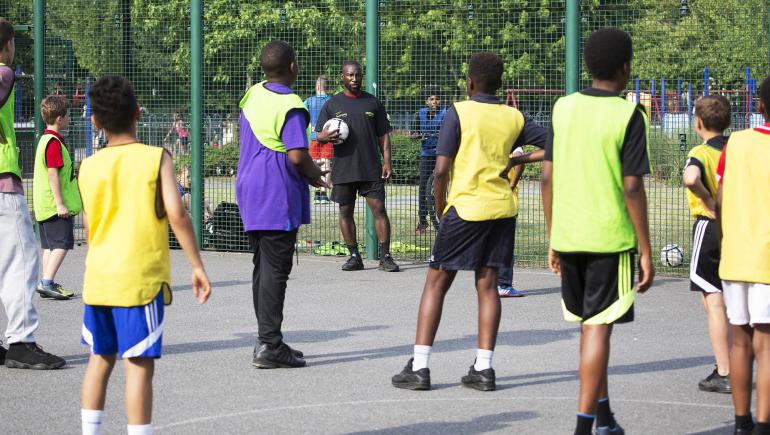The DCMS’ Head of Sport has called on the sports sector to become more “hard-headed” in the way it communicates its social value.
Nico Heslop was speaking at the recent Westminster Media Forum Keynote Seminar entitled ‘The future for sports funding in the UK - grassroots, commercial revenue streams, and the future elite funding strategy’.
Several speakers at the Seminar, including Sport England COO Nick Pontefract and StreetGames Deputy CEO Mark Lawrie, addressed sport’s growing role in helping to generate positive social outcomes, for example around increasing community cohesion or reducing crime.
BENEFITS
But Heslop warned that, despite the increasing number of actors now intentionally focusing on the societal benefits of sport, the biggest challenge remains “to truly make sport wider than just sport for sport’s sake”.
His comments come after Sports Minister Mims Davies’ speech at the launch of UK Sport’s future funding strategy, in which she called on the sector to “strive for excellence” at the grassroots and elite level and promote the value of sport to physical and mental wellbeing. She said she wants future spending decisions to take into account the “huge benefits” that sport and physical activity can bring.
 Building on this, Heslop told the Seminar that part of the problem is that so many people in the UK are passionate about sport and innately believe in its power to achieve social good, without necessarily being able to prove it or define its subsequent value.
Building on this, Heslop told the Seminar that part of the problem is that so many people in the UK are passionate about sport and innately believe in its power to achieve social good, without necessarily being able to prove it or define its subsequent value.
This lack of “cold-hearted calculation” could potentially inhibit other Government departments, such as health or criminal justice, when it comes to investing in sport or physical activity-based interventions.
He said: “I suspect I’m talking to a room of sports nuts who also have similar views about the benefits that sport has brought to them. I think that’s fantastic, and it brings passion and it brings energy into a sector, and it is full of people who believe in it.
“But there is a risk to that and that is sometimes I don’t think we are hard-headed enough.”
Heslop said other sectors approach an issue in a more calculated way by looking at what benefits it will provide.
He added: “I think too often in sport we start from ‘sport does good things, sport helps me’ and we forget to do the cold-hearted calculation.”
INVESTMENT
The Head of Sport said he has met “countless brilliant organisations” since he started his role in September, with inspiring examples of sporting programmes that have helped people from those with mobility issues to people who feel socially isolated.
“All of these stories are fantastic and inspiring”, he said, “but I always ask them - because I’m a bit mean - what’s the return on investment on that? And then the answers get a bit murkier to be completely honest.
“If we truly want to deliver the kind of change in sport delivering across a whole range of social outcomes, if we truly want to get all of the Government departments backing it even more….. we need to be demonstrating that a pound spent on a sporting intervention will deliver better social return than a pound spent on treating people with drugs.
“I think until we can get to that level of detail around interventions at the right scale, we will sort of struggle to get over some of the hurdles.”
ConnectSport is the official media partner of the Sport for Development Coalition, a group of 60 organisations including charities, governing bodies and funders who all believe in the power of sport and physical activity to act as effective tools for intervention when generating positive social outcomes. It is funded and supported by Sport England, Comic Relief and Laureus. Read more about the Coalition here.












